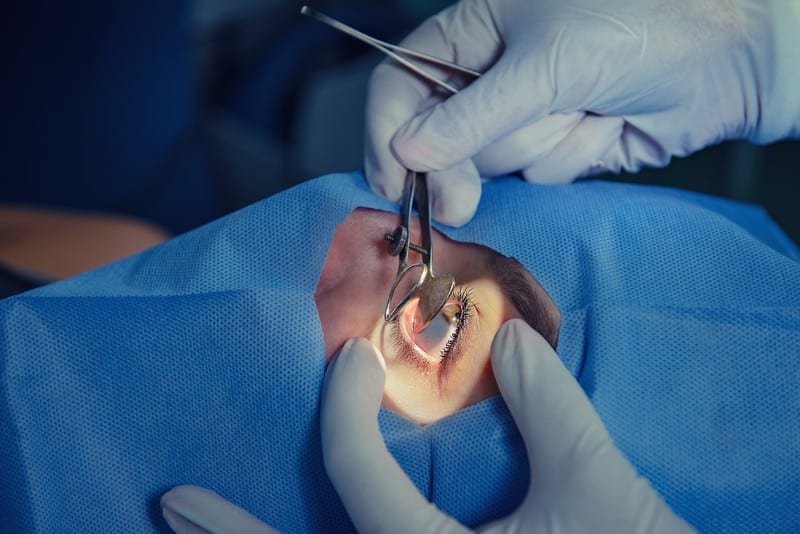Eye Surgery

Some people undergo surgery and other procedures to correct vision or treat eye conditions. The treatment depends on the patient’s diagnosis, which may involve glaucoma, cataracts, retinopathy, nearsightedness, farsightedness, and others. Procedures may also vary from less-invasive laser treatments to invasive surgeries.
No matter what condition and in which form, eye surgeries are likely to heighten the chance of developing a blood spot or subconjunctival hemorrhage. Experts say any trauma to the eye, including surgical manipulation, is a potential cause for bleeding or bursting blood vessels.
Sometimes, a subconjunctival hemorrhage happens after surgery with the use of anticoagulants. It may also occur as an effect of irritation or infection.
Like most causes, bleeding due to a recent eye procedure clears up without additional care instructions. It resolves itself as the eye starts to heal from the surgery. But if irritation or signs of infection prove to be more severe than impressed, it may be wise to consult the doctor to control the situation and keep the condition from worsening.










